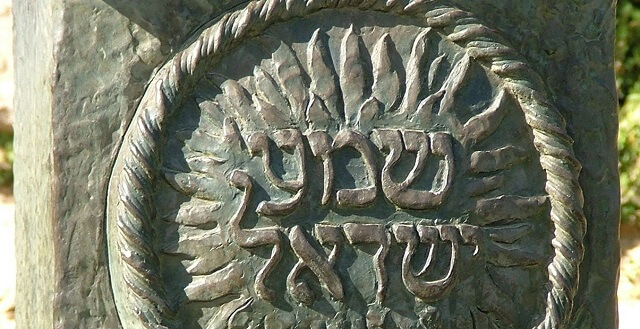When we recite the Shema — Judaism’s central affirmation of faith — we accept upon ourselves ohl malchut shamayim, God’s kingship and authority. The Torah instructs us to recite the Shema twice a day — “when you lie down and when you rise up“ (6:7).
Why isn’t once a day sufficient?
Public and Private Domains
By contemplating and meditating on a concept, we deepen its impact on the soul.
The day has two parts. There are the daytime hours, when we interact with the outside world. And there is the evening, when we retire to the quiet sanctuary of our homes. By reciting the Shema every morning and evening, we accept malchut shamayim during both parts of the day. In other words, our affirmation of Shema guides us in our public activities in the daytime, as well as in our private lives at night.
Reciting the Shema before the day begins helps prepare us for the daytime hours, so that our social interactions and public activities will meet the Torah’s ethical standards. And the Shema of the evening is meant to imbue our private lives with holiness and purity.
Both affirmations are vital. Ethical living should not be restricted to one’s private life, just as it should not be limited to the sphere of one’s public affairs.
This dual recital of Shema provides an additional insight. The ethical directives for society as a whole are different than those for the individual. Public life is too varied and complex to be governed by the same guidelines that guide private individuals. The Shema of the morning is therefore inherently different than the Shema of the evening.

The Private Service of the Kohen
This insight helps us understand a peculiar statement of the Sages. The Mishnah teaches that the evening Shema is to be recited “after the hour when the kohanim return [from the mikveh] to eat their terumahofferings” (Berachot 1:1). A kohen who became ritually impure must immerse himself in a mikveh and wait until nightfall before eating terumah. When in fact did the kohanim become pure and could once again eat terumah? When the first stars may be seen in the night sky.
Why doesn’t the Mishnah mention this time explicitly? Why the digression about kohanim returning home to eat their terumah?
In fact, this is a beautiful metaphor for the evening Shema. The principal service of the kohanim takes place during the day; but their evening meal of terumah is also a form of Divine service (see Pesachim 73a). The inspiring image of a kohen entering his home to eat terumah corresponds to our own recital of the evening Shema, as we accept God’s dominion in our private lives. When we recite Shema in the evening, we demonstrate that we belong to a “kingdom of priests” also in the privacy of our own homes.
The Shema of the Nation
This distinction between the evening and morning Shema, between our private and public service of God, has a parallel on the national level. There are times and situations in which the Jewish people must be a “people who dwells alone” (Bamidbar 23:9) — a people separated from the other nations in order to safeguard their special heritage. On the other hand, the nation of Israel is also charged to influence and uplift the rest of humanity, to serve as “a light unto the nations” (Yishayahu 42:6).
The evening Shema corresponds to the special spiritual life of Israel, a nation living its own existence in pure faith. The blessing recited after the evening Shema is “Emet va'Emunah” — “Truth and Faith.” This is a time when the unique character of the Jewish people must be protected from foreign influences. It is like the kohen who returns to his home in the evening, after publicly representing the people in the Temple during the day. In the privacy of his home, the kohen separates from non-kohanim as he partakes of the holy terumah offerings.
The morning Shema, on the other hand, corresponds to our national mission to declare God’s Name in the world. Therefore, the blessing recited after the morning Shema is “Emet VaYatziv.” The word yatziv is simply emet (truth) translated to Aramaic. We translate the Torah’s message to other languages, as this is a time when its truth should be understood by all nations of the world, inspired by Israel’s acceptance of God’s reign.
(Adapted from Ein Eyah vol. I, p. 173 by Rav Chanan Morrison)


No comments:
Post a Comment